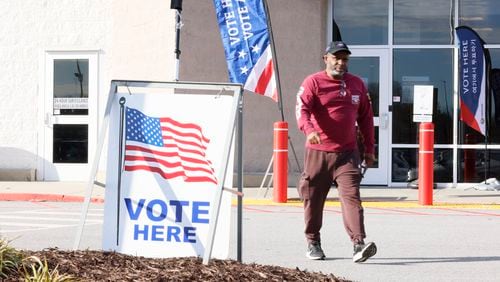With the state in the middle of a financial crisis, Georgia senators are looking at eliminating or reducing about 40 special-interest tax breaks lawmakers have passed over the years.
Making the potential list, a break on jet fuel that heavily benefits Delta Air Lines, a deal for owners of high-end yachts if they get their vessels repaired in Georgia, and tax breaks for manufacturers, historic preservationists and everything from gold dealers to mobile home sellers.
The draft was obtained by the Atlanta Journal-Constitution.
Senate Finance Chairman Chuck Hufstetler, R-Rome, said the proposal is a work-in-progress from a bi-partisan group looking for ways to reduce the cost of tax breaks at a time when lawmakers are faced with cutting $2.6 billion worth of spending because of the coronavirus pandemic recession.
“DFCS and public safety and teachers and public health, everyone is taking a hit,” Hufstetler said. “We are trying to look at ways to not lay off people that are essential.”
The laundry list of tax break eliminations and revisions would be attached to House Bill 1035, a measure that passed the House earlier in the session that would make permanent some popular sales tax exemptions, like one on food sold to food banks.
The chairman, whose committee may take up the measure Thursday, said all 40 may not make the cut.
But House Speaker David Ralston, R-Blue Ridge, shot the idea down Tuesday before it was even presented to the Senate panel.
“How many jobs would it kill?” Ralston asked. “This is not a good time to be killing jobs.”
Lawmakers are looking for ways to mitigate massive budget cuts they’ll have to make for fiscal 2021 - which begins July 1 - because of the economic downturn caused by the pandemic.
The pandemic has brought record unemployment and thousands of business either closed or struggling to remain open. That, in turn, has sent state tax collections — mostly income and sales taxes — plummeting.
Lawmakers must, by law, pass a budget in the next few days. Because they expect less revenue, they face cutting everything from k-12 schools and universities to the Georgia State Patrol, food safety inspections, highway construction, mental health and substance abuse programs, and county health department funding.
Under budget plans that agencies submitted last month, more than 1,000 filled jobs would be eliminated and tens of thousands of state employees would be furloughed.
Ralston has rejected the idea of increasing cigarette taxes to raise money, something that health advocates have longed promoted. Hufstetler, an anesthetist, backs an increase in tobacco taxes.
Special-interest tax breaks approved over the years cost the state - and save select taxpayers and businesses - billions of dollars a year.
Hufstetler said the proposals senators are considering could save the state hundreds of millions of dollars.
Some - such as reducing tax breaks for manufacturers - have little chance of passing.
Others would impact tax breaks that are fairly new.
For instance, lawmakers three years ago passed a tax break for owners of giant yachts who get their vessels repaired or retrofitted in Georgia.
It was pushed by a Savannah lawmaker to help the Colonial Group, a local company that owned a yachting center and wanted to get into the repair business.
One of the more controversial ones on the list is the jet fuel tax break for companies like Delta. The proposal appears to eventually eliminate the tax break, but legislation on it has been contradictory in the past.
And the General Assembly has had a love-hate relationship with Delta and the tax break for more than a decade.
It was passed in the mid-2000s when Delta was having financial troubles. Lawmakers renewed it several times before company executives got on the wrong side of the Republican majority and it was nixed.
In 2018, then-Gov. Nathan Deal tried to bring it back, only for it to pass the House and stall in the Senate when Delta broke ties with the National Rifle Association, a political no-no, particularly in a year when Republicans were set to battle it out for the party's nomination for governor.
Deal responded after the 2018 session by having the state stop collecting the local portion of the tax on July 1, 2018, and then he signed an executive order suspending collections of the state portion of the tax.
During a November 2018 special session, Delta sent in a team of lobbyists to push for the tax break. The General Assembly backed Deal's executive order and tax break but said it only ran through June 30, 2019.
However, the Department of Revenue ruled that language in the bill made the jet fuel tax break -- worth about $35 million a year, mostly going to Delta -- permanent.
However, lawmakers can vote to eliminate tax breaks at any time.








